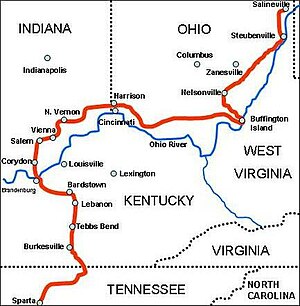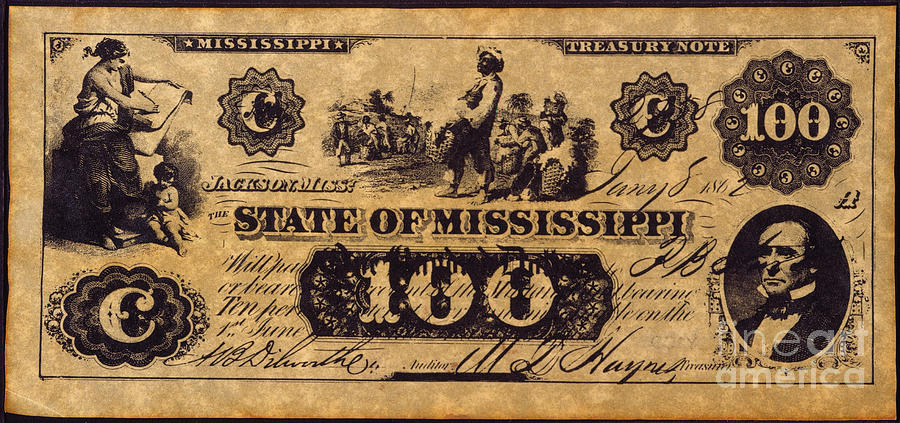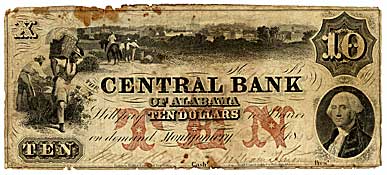Skip to comments.
Murder in the Mountains
NY Times Disunion ^
| January 19, 2013
| RICK BEARD
Posted on 01/21/2013 12:36:06 AM PST by iowamark
On Jan. 18, 1863, troops from the 64th North Carolina Infantry under the command of Lt. Col. James Keith lined up 13 men and boys, ranging in age from 13 to 60, made them kneel and shot them at point-blank range. Then the soldiers tossed the bodies into a shallow grave, from where they were later reclaimed by family members for burial.
This incident in Madison County, N.C., known to history as the Shelton Laurel massacre, was hardly the worst example of violence visited on civilian populations during the Civil War. On Aug. 21, 1863, scarcely a month after the murders in North Carolina first received national press coverage, the Confederate guerrilla leader William C. Quantrill led a raid on Lawrence, Kan., that killed 183 men and boys.
But Shelton Laurel provides an especially compelling look at the internecine war between Confederate authorities and pro-Union sympathizers in the mountains of western North Carolina and eastern Tennessee. Madison County sits on the border with Tennessee and in 1863 was incredibly isolated...
The county also featured one of the state’s sharpest political divides over the issue of secession... it stemmed from an amalgam of class resentment against the slave owners and tenant farmers who had supported secession; a deeply engrained rural suspicion of urban places; and a widespread feeling that the wealthy were threatening hard-working common people.
“The Unionism of Western North Carolina … was less a love for the Union than a personal hatred of those who went into the Rebellion. It was not so much an uprising for the government as against a certain ruling class.”
(Excerpt) Read more at opinionator.blogs.nytimes.com ...
TOPICS: History; Military/Veterans
KEYWORDS: civilwar; northcarolina; partyoftreason; proslavery; secession; whitesupremacy
Navigation: use the links below to view more comments.
first previous 1-20, 21-40, 41-51 next last
To: fella
****Huntsville Arkansas had a similar incident with hard feelings lasting into recent times.****
Perhaps it is because Madison County is the only county that voted to stay in the Union.
21
posted on
01/21/2013 9:12:29 AM PST
by
Ruy Dias de Bivar
(Click my name! See new paintings!)
To: Ruy Dias de Bivar
Dang! A FReeper who knows about Madison (Bogger) county Arkansas.
22
posted on
01/21/2013 9:21:19 AM PST
by
fella
("As it was before Noah, so shall it be again,")
To: iowamark; rockrr; Sherman Logan; x; central_va; Dusty Road; Happy Rain; Rebelbase; ought-six; ...
ping
Happy Rain: "My paternal great grandaddy rode with Bedford Forest"
ought-six: "Mine, too..."
Tupelo: "Well, well well. That makes three of us. Only it was my maternal Great Grandfather...."
First of all, I have seen the historical marker at the intersection of NC 208 and 218.
Some of my relatives there, and their neighbors, have family connections to the victims.
Even to this day they are not so friendly to outsiders. ;-)
For those whose ancestors rode with Nathan Bedford Forest, one of my great-grandfathers fought against him -- on the losing side in October 1862, at Rutherford Station, Mobile & Ohio Railroad (northwest of Memphis, Tennessee), on the winning side in July 1864, at Tupelo, Mississippi.
I have the greatest personal respect for Forest, precisely because, when he had the opportunity, he did not do to my ancestor's unit as Keith did in North Carolina.
Indeed, I believe Forest's good behavior at Rutherford Station was returned in July 1864, at the battle of Tupelo, when Forest reconnoitering, rode right through a Union unit at night (much like Stonewall Jackson), but Forest escaped unharmed.
One good turn deserved another, I think.
And the key point to remember is that Forest's behavior was more the rule, Keith's the rare exception.
23
posted on
01/21/2013 11:44:31 AM PST
by
BroJoeK
(a little historical perspective....)
To: Rebelbase
Interesting tagline to that book: “The killers had names, the victims had kin, and everybody had a gun.”
24
posted on
01/21/2013 12:07:35 PM PST
by
rockrr
(Everything is different now...)
To: BroJoeK
And the key point to remember is that Forest's behavior was more the rule, Keith's the rare exception.It is often easy to forget that our CW had by far the fewest atrocities committed during and following the war of ANY great civil war in history.
To: Ruy Dias de Bivar
The Cherokee fought their own civil war in the middle of ours.
Not that this was much of anything new to them.
To: Tupelo
Brice’s Crossroads is still studied to this day as to how a smaller force (i.e., Forrest’s Confederates) could wreak havoc on a much larger force (i.e., Sturgis’s Federals).
27
posted on
01/21/2013 12:34:12 PM PST
by
ought-six
( Multiculturalism is national suicide, and political correctness is the cyanide capsule.)
To: Tupelo
Brice’s Crossroads is still studied to this day as to how a smaller force (i.e., Forrest’s Confederates) could wreak havoc on a much larger force (i.e., Sturgis’s Federals).
28
posted on
01/21/2013 12:37:41 PM PST
by
ought-six
( Multiculturalism is national suicide, and political correctness is the cyanide capsule.)
To: Sherman Logan
It is often easy to forget that our CW had by far the fewest atrocities committed during and following the war of ANY great civil war in history.If you want to forget Sherman's (The Torch) Georgia and Carolina campaigns.... LOL
29
posted on
01/21/2013 4:00:04 PM PST
by
central_va
( I won't be reconstructed and I do not give a damn.)
To: central_va
Do you understand the concept of less and more? Hint: less does not mean none.
If you wish to challenge my observation, feel free to demonstrate why I’m wrong by referencing a great civil war that had fewer atrocities.
To: central_va; Sherman Logan
central_va:
"If you want to forget Sherman's (The Torch) Georgia and Carolina campaigns.... LOL" LOL?
To keep things in perspective, let us rehearse again the Confederate invasions and operations in Union states and territories.
These invasions all left trails of pillage and destruction:
- Maryland
- Stonewall Jackson in May 1862 (Front Royal)
- RE Lee in September 1862 (Antietam/Sharpsburg)
- JEB Stuart in July 1863 (Gettysburg)
- Jubal Early in July 1864 (Monacacy)
- Pennsylvania
- JEB Stuart in October 1862
- RE Lee, JEB Stuart & Co in June-July 1863 (Gettysburg)
- Jubal Early / John McCausland in July 1864 (Burning of Chambersburg)
- Ohio
- Albert Jenkins in September 1862
- John Morgan in summer 1863 (Morgan's Raid)

- Indiana
- Newberg Raid (1862)
- Hine's & Morgan's Raids (1863)>

- Kentucky
- A long list of Confederate invasions of Kentucky, beginning with Leonides Polk in September 1861
- Crittenden in January 1862 (Mill Springs)
- Johnson at Forts Henry and Donaldson
- John Morgan throughout 1862 & 1863
- Battles of Richmond, Mumfordville, Perryville (1862)
- to Nathan Forrest in 1864.
- Missouri
- Continuous battles, from Wilson's Creek in 1861
- to Price's Raid in 1864.
- Kansas
- Quatrill's Raiders in 1863, including the Lawrence Massacre
- Price's Raid in 1864.

- Oklahoma and New Mexico both invaded by Confederate forces.
- Colorado and California had Confederate forces operating in them.
31
posted on
01/22/2013 5:50:07 AM PST
by
BroJoeK
(a little historical perspective....)
To: Rappini
Remember Scarlett O'Hara shooting the Blue Belly trying to rape her?
She was one of the very few lucky ones when Sheridan and Sherman raped, pillaged, burned and murdered across vast swaths of the South...
...but the North won the war and so writes the histories, but we in the South know from the telling of our forefathers the evil and cruel fascist behavior of the Union Armies in the South.
32
posted on
01/22/2013 6:33:20 AM PST
by
Happy Rain
("Banning guns over Adam Lanza would be like banning speech over Bill Maher.")
To: central_va
Don't forget Sheridan and his raping, burning, murdering, starving and pillaging the Shenandoah Vally.
Sherman and Sheridan Blue Scum Bellies bragged for years that most the babies born in the South after the war were probably half Yankee (and not by choice).
My family was ruined by Sherman and like a Jew in old Poland I may be the illegitimate descendant of a rapist Cossack.
33
posted on
01/22/2013 6:43:14 AM PST
by
Happy Rain
("Banning guns over Adam Lanza would be like banning speech over Bill Maher.")
To: Happy Rain
There is a book that I read a few years about called The South Was Right by the Kennedy brothers that really made me think that the South Was Right.
34
posted on
01/22/2013 6:46:42 AM PST
by
Rappini
(Veritas vos Liberabit)
To: BroJoeK
You forgot the invasion of Vermont. LOL
To be perfectly fair, the various CSA invasions of northern territory were generally better-behaved than those of the Union, particularly Sherman’s troops.
With the notable and obvious exceptions of the raid on Lawrence and similar actions by irregulars. But those were part of the “dirty war” in the border states carried out by irregulars, where atrocities were a lot more common than by regular troops of either side.
In fact, even at Lawrence the raiders are reported to have tipped their hats to the ladies before tossing their bound husbands and sons into the burning buildings.
Ran across an interesting article about Sherman’s March and how destructive it was in reality vs. myth.
http://people.cohums.ohio-state.edu/grimsley1/myth/myth.htm
Contemporary accounts are unanimous that SC suffered much more than GA or (particularly) NC, which doesn’t line up well with the mythology of the March across Georgia being all-destroying. If they destroyed everything in GA, how could they destroy a lot more in SC?
I do know that some of Sherman’s soldiers were hanged for rape, which doesn’t line up with such behavior being encouraged.
To: Rappini
The Union Industrialists of the North who owned Lincoln and resented the competition of Southern slave labor and the Southern politicians in the pockets of the wealthy slave owning planters made the war about slavery.
Fully 98% of both countries did not care one bit about slavery.
After enough Yankee soldiers were killed the survivors, their comrades, just wanted revenge and they didn't care for what cause—they wanted blood and the bodies of their hated enemies women...
The Red Army in East Germany during WWII is the best comparison.
36
posted on
01/22/2013 7:28:41 AM PST
by
Happy Rain
("Banning guns over Adam Lanza would be like banning speech over Bill Maher.")
To: Rappini
I read it too. Interesting arguments but wrong conclusions. The southron slavers were wrong (thank God).
37
posted on
01/22/2013 9:09:46 AM PST
by
rockrr
(Everything is different now...)
To: Happy Rain
"The Union Industrialists of the North who owned Lincoln and resented the competition of Southern slave labor and the Southern politicians in the pockets of the wealthy slave owning planters made the war about slavery" A agree. The war was started by the politicians who were "owned" by the interests of the wealthy. The average, non slave owning southerner was fighting to keep his homeland from being invaded. One example for support of slavery as the root cause can be found in the money printed by confederate states and southern private banks during the war. Symbolism adorning money most often enshrines the highest, most sacred institutions of a culture. Many banks offered money adorned with slave scenes.




To: rockrr
39
posted on
01/22/2013 10:08:12 AM PST
by
Rappini
(Veritas vos Liberabit)
To: Rebelbase
You contradict yourself—printed money presented the symbols of the government and the wealthy elite “culture” who financed their purchasing power and never represented the popular culture of the American people of the South.
98% percent of the Americans fighting against the Blue Scum Belly Union thug invaders had their own culture-one enshrined by Jamestown, Charleston, Savannah and New Orleans—that of defending their homes from war criminal bastards following the orders of avarice-ridden imperial Big Government fascist sons of bitches.
40
posted on
01/22/2013 10:35:15 AM PST
by
Happy Rain
("Banning guns over Adam Lanza would be like banning speech over Bill Maher.")
Navigation: use the links below to view more comments.
first previous 1-20, 21-40, 41-51 next last
Disclaimer:
Opinions posted on Free Republic are those of the individual
posters and do not necessarily represent the opinion of Free Republic or its
management. All materials posted herein are protected by copyright law and the
exemption for fair use of copyrighted works.
FreeRepublic.com is powered by software copyright 2000-2008 John Robinson






